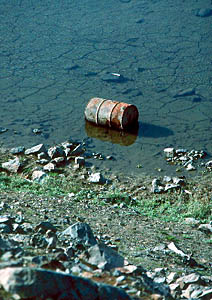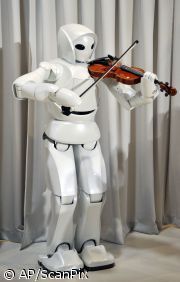The rights and wrongs of using radio frequency identification (RFID) tags on humans have been debated since the tracking tags reached the technological mainstream
Published:
14 July 2004 y., Wednesday
Japanese authorities decide tracking is best way to protect kids
The rights and wrongs of using radio frequency identification (RFID) tags on humans have been debated since the tracking tags reached the technological mainstream. Now, school authorities in the Japanese city of Osaka have decided the benefits outweigh the disadvantages and will now be chipping children in one primary school.
The tags will be read by readers installed in school gates and other key locations to track the kids' movements.
The chips will be put onto kids' schoolbags, name tags or clothing in one Wakayama prefecture school. Denmark's Legoland introduced a similar scheme last month to stop young children going astray.
RFID is more commonly found in supermarket and other retailers' supply chains, however, companies are now seeking more innovative ways to derive value from the tracking technology. Delta Air Lines recently announced it would be using RFID to track travelers' luggage.
Šaltinis:
CNET News.com
Copying, publishing, announcing any information from the News.lt portal without written permission of News.lt editorial office is prohibited.
The most popular articles

The European Commission announced today the award of three of the six contracts for the procurement of Galileo’s initial operational capability.
more »
 The need for energy that does not come from oil, equality between the sexes and more spending on education are just some of the things people have requested using the Parliament's choice boxes.
more »
The need for energy that does not come from oil, equality between the sexes and more spending on education are just some of the things people have requested using the Parliament's choice boxes.
more »
 This week marks the launch of the tenth Interest Rate Challenge, the competition designed to give 16 to 18 year old students across the UK the opportunity to take on the role of the Bank’s Monetary Policy Committee and set monetary policy for the UK to meet the inflation target of 2.0%.
more »
This week marks the launch of the tenth Interest Rate Challenge, the competition designed to give 16 to 18 year old students across the UK the opportunity to take on the role of the Bank’s Monetary Policy Committee and set monetary policy for the UK to meet the inflation target of 2.0%.
more »
 One California company unveiled a solution - a prototype energy station that swaps electric vehicles' empty batteries for fully charged ones.
more »
One California company unveiled a solution - a prototype energy station that swaps electric vehicles' empty batteries for fully charged ones.
more »
 NASA officials have confirmed that the space shuttle Atlantis was hit by a piece of debris that nicked part of its heat shield.
more »
NASA officials have confirmed that the space shuttle Atlantis was hit by a piece of debris that nicked part of its heat shield.
more »
 Atlantis carried a seven-member crew that was scheduled to perform five spacewalks to install and repair instruments and replace positioning gyroscopes on the telescope, which orbits 350 miles above Earth.
more »
Atlantis carried a seven-member crew that was scheduled to perform five spacewalks to install and repair instruments and replace positioning gyroscopes on the telescope, which orbits 350 miles above Earth.
more »
 Artificial grass maker Ten Cate is developing an intelligent pitch in the Netherlands.
more »
Artificial grass maker Ten Cate is developing an intelligent pitch in the Netherlands.
more »
 Russian scientist Olga Speranskaya has taken on one very tough job - to help clean up the vast network of toxic chemical sites in the former Soviet states.
more »
Russian scientist Olga Speranskaya has taken on one very tough job - to help clean up the vast network of toxic chemical sites in the former Soviet states.
more »
 European politicians will be visiting schools around Europe as part of ‘spring day’ 2009.
more »
European politicians will be visiting schools around Europe as part of ‘spring day’ 2009.
more »
 The current experiments show a subject an image and then reconstruct that image based on scans of the brain's visual cortex.
more »
The current experiments show a subject an image and then reconstruct that image based on scans of the brain's visual cortex.
more »
 The children of people who come to live in Europe will have to learn the language of the country they enter from pre-school age.
more »
The children of people who come to live in Europe will have to learn the language of the country they enter from pre-school age.
more »